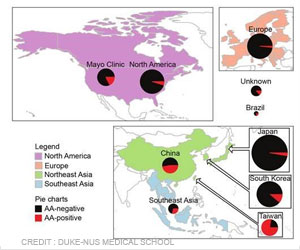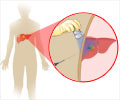Replacing sugar-sweetened beverages with water, and non-sugar-sweetened coffee or tea could significantly lower liver cancer risk.
- The occurrence of liver cancer has risen sharply during the past three decades
- But known risk factors do not explain approximately 40% of liver cancer cases
- And so, researchers are now looking to know if specific dietary factors could play a role
Which is the Common Risk Factor for Liver Cancer?
Incidence of liver cancer has risen sharply during the past three decades in the U.S.. While risk factors such as chronic hepatitis infections, alcohol consumption, and diabetes are implicated in a majority of patients, approximately 40% of liver cancer cases are not explained by known risk factors. The researchers sought to find out if specific dietary factors could play a role. As we know regular consumption of sugar-sweetened beverages such as soda and fruit drinks has been linked with a variety of health problems. While sugar-sweetened beverage intake has fallen over the past several decades, it is still common; nearly two-thirds of White adults in the U.S. reported at least some sugar-sweetened beverage consumption on a given day in 2017-2018.Participants completed baseline questionnaires in the mid-1990s and were tracked for a median of 18 years. Researchers assessed sugar-sweetened beverage intake based on validated food frequency questionnaires and confirmed liver cancer diagnoses using participants’ medical records.
About 7% of participants reported consuming one or more 12-ounce servings of sugar-sweetened beverages per day and a total of 205 women developed liver cancer.
Women consuming one or more sugar-sweetened beverages daily were 78% more likely to develop liver cancer and those consuming at least one soft drink per day were 73% more likely to develop liver cancer compared with those who never consumed these beverages or consumed less than three servings per month.
“Our findings suggest sugar-sweetened beverage consumption is a potentially modifiable risk factor for liver cancer,” said Longgang Zhao, a doctoral candidate at the University of South Carolina, the study’s lead author.
How Does Sugar Affect the Liver?
Although more studies would be needed to determine the factors and mechanisms behind the linkage, researchers said that higher sugar-sweetened beverage consumption might increase the risk of obesity and type 2 diabetes, which are in turn risk factors for liver cancer.They also cautioned that the study is observational and was not designed to determine whether sugar-sweetened beverages cause liver cancer or if consumption of sugar-sweetened beverages is an indicator of other lifestyle factors that lead to liver cancer.
Source-Medindia
















